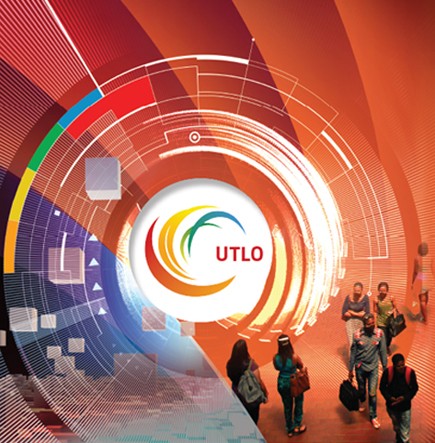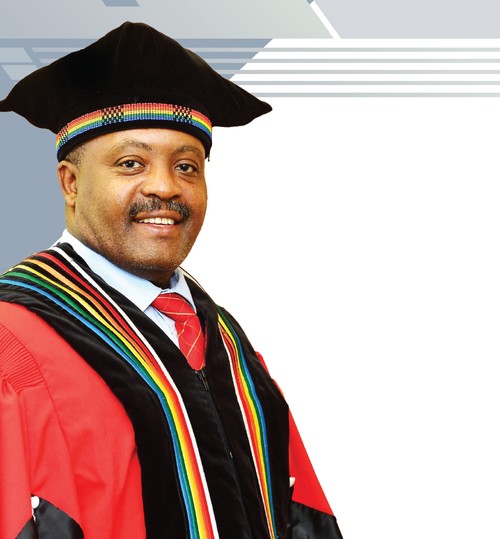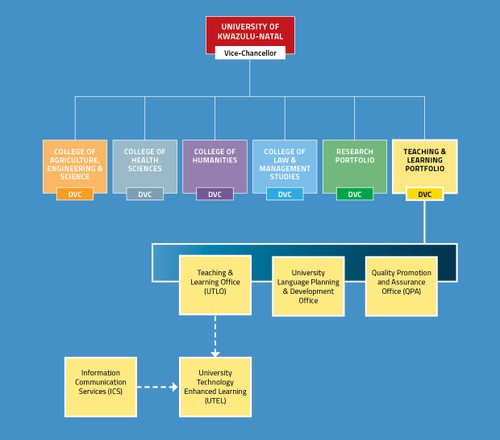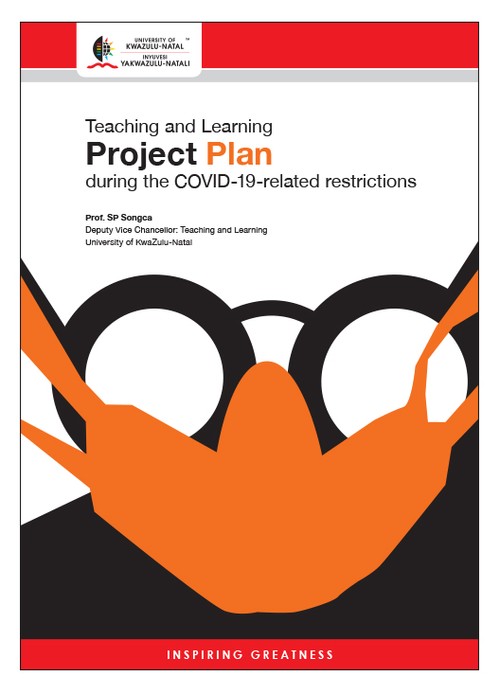The Quality Promotion and Assurance (QPA) Unit plays a vital role in supporting the goals outlined in the University’s Strategic Plan. It is entrusted with the responsibility to ensure the provision of QPA through excellence in teaching and learning in six main areas:
- Programme and qualification mix; – automated curriculum management system;
- national review of doctoral qualifications;
- student and peer evaluations; institutional research – the graduate opinion survey; and
- the students’ access to and use of learning materials survey.
Programme and Qualification Mix
As at 20 April 2021, a total of 443 programmes were listed on the UKZN Programme and Qualification Mix (PQM), with master’s degrees (167) making up the largest number of programmes offered (see Table 7). The Master of Commerce in Banking and Investment Management is a new programme which was submitted to the Department of Higher Education and Training for PQM approval in September 2020 and the University is awaiting feedback.
The University submitted three new programmes to the Higher Education Quality Committee (HEQC) for accreditation in July 2020 (see Table 8).
Five new programmes (see Table 9) were accredited by the HEQC in September and November 2020 and have been submitted to the South African Qualifications Authority (SAQA) for registration (see Table 9).
 Table 7. Number of Qualifications on the UKZN PQM as at December 2020
Table 7. Number of Qualifications on the UKZN PQM as at December 2020
 Table 8. Programmes awaiting a response from the HEQC
Table 8. Programmes awaiting a response from the HEQC
 Table 9. Programmes accredited by the HEQC
Table 9. Programmes accredited by the HEQC
Automated Curriculum Management System
QPA and the Improvement and Development (IMPDEV) Unit in ICS are working on an automated Curriculum Management System (CMS) in order to streamline the University’s curriculum management process. It will enhance the curriculum management process through the use of web-based programme/module templates, online internal approval of programmes and modules, automated synchronising of programmes and modules on other University platforms (such as Moodle, ITS, and the University’s website), and stakeholder access to updated programmes, modules and handbook information.
National Review of Doctoral Qualifications
The decision to conduct a national review of doctoral qualifications arose from discussions between the Council on Higher Education (CHE) and the National Research Foundation (NRF). The NRF has several funding instruments that support the doctoral degree, and thus needs to be assured that doctoral qualifications offered by South African public and private higher education institutions meet national quality standards.
A national standard for the doctoral qualification was developed by the CHE and was used by higher education institutions to inform and guide their delivery and quality assurance of doctoral studies, and by students and the public as a threshold against which the quality of each doctoral qualification could be evaluated.
The HEQC determines the outcome for each institution. One possible outcome is confirmation that the doctoral qualification meets, or exceeds, the qualification standard in all respects. Another is a decision that the standard has not (yet) been met. In the latter case, the HEQC may decide on a set of requirements to be addressed by the institution, together with timelines for improvement plans and progress reports. The areas of improvement may coincide with, or differ from, those identified by the institution itself. The process of reporting to the HEQC continues until such time that it is satisfied that all requirements pertaining to the standard have been met. Although the doctoral review is not a re-accreditation of doctoral qualifications the outcome will have reputational implications for the university.
A steering committee, chaired by Professor Ramjugernath, was appointed to lead the process at UKZN. Task teams were appointed in each College to drive the process at that level. The first step was the development of College Self-Evaluation Reports (SERs). The Institutional SER (ISER) was based on the four College SERs. The steering committee assisted the Colleges with data to complete their SERs. These were distributed in various memoranda to the task teams and posted on the QPA website. College SERs were submitted to the Director of QPA by 23 January 2020 and served at the College Academic Affairs Board meetings.
The ISER was submitted to the Schools and College Academic Boards for noting. The report was endorsed by the Vice-Chancellor and submitted to the CHE on 30 March 2020. The final ISER can be accessed on the QPA innerweb CHE Doctoral Review 2019-2020 and the QPA website.
In May 2020, the CHE informed the University that, in light of the COVID-19 pandemic, it would conduct desktop reviews of institutions, with the possibility of on-site visits. The site visit which took place from 12 to 15 October 2020 only consisted of virtual interviews; however, comprehensive visual material of resources for doctoral students was compiled and is available. Intense communication between the CHE and members of the steering committee ensured that the process ran smoothly and all categories of interviewees were well represented. The draft review reports will be tabled at the National Standards and Reviews Committee (NSRC) meeting. Thereafter, they will be submitted to the institutions for factual correction.
University Research and Ethics Committee (UREC) is responsible for monitoring the UKZN doctoral review improvement plan. The progress reports are submitted to UREC which is responsible for sign off on the progress report after it is satisfied that the areas of improvement have been sufficiently addressed and do not pose reputational risks for the University. Depending on the scale of improvement required and the timeline set by the CHE, the University may be required to submit periodic progress reports to the CHE during the period of improvement.
All documents relating to the doctoral review are on the QPA innerweb, QPA website and CHE Doctoral Review 2019-2020.
Student and Peer Evaluations
Student evaluations of teaching are widely used at higher education institutions worldwide to provide opportunities for academic staff to reflect on their teaching and its impact. QPA assists in this regard by providing an unbiased and independent University-wide platform for such student feedback.
A range of instruments is available to gauge the different aspects of teaching within the University, including: – Student feedback questionnaire with core questions – Postgraduate supervision questionnaire – Professional practice module evaluation questionnaire – Professional practice supervision questionnaire
QPA Student Evaluation questionnaires were used to evaluate the modules offered online in 2020. The low response rates are of concern and QPA is engaging in research to explore this. Other ongoing projects include improving the online systems by full automation of the postgraduate questionnaire, establishing a dashboard where it would be possible to monitor modules that have not been evaluated, their response rates and overall performance of the module, and the generation of feedback reports.
With endorsement by the DVC: Teaching & Learning, QPA explored the possibility of procuring a new student evaluation system for the University. Discussions have been held with various stakeholders, internally and externally, including the IMPDEV unit in ICS, and the Universities of the Witwatersrand and Johannesburg to determine the effectiveness of the system. Discussions to procure software are at an advance stage.
Institutional Research: Graduate Opinion Survey
Institutional research is conducted at various levels in order to provide information that supports institutional planning, policy formation and decision making. QPA is responsible for collecting, analysing and reporting on graduates’ perspectives on the quality of their educational experiences at UKZN. This survey covers a range of questions that include workload, the development of skills, teaching, assessment and facilities, and support and administrative staff. In order to determine whether or not teaching and learning at the University was effective, the survey also asks students about their level of preparedness for their careers and their current employment status. Each year, the Graduate Opinion Survey is administered to graduates attending the University’s graduation ceremonies. In 2020, it was administered online.
Students’ Access to and Use of Learning Materials (SAULM) survey
The Students’ Access to and Use of Learning Materials (SAULM) survey initiated by the Department of Higher Education and Training provided an opportunity to gather national data that can help institutions and the broader sector to reflect on how things have changed and what the implications could be for a “new normal.” The survey was developed to explore how students are engaging with learning materials.
The survey was conceptualised and administered at an opportune time, five months into the national lockdown. This meant that it could explore students’ experiences prior to, and during lockdown. Since the majority of institutions managed to implement some form of remote learning, capturing students’ experiences during this time can contribute meaningfully to the sector’s conceptualisation of teaching and learning beyond the emergency remote learning response necessitated in 2020.
The findings of the SAULM survey contribute to policy and practice by making a case for the following:
- Ensuring that all staff and students have access to basic learning infrastructure, which includes appropriate devices, data and connectivity, to address the digital divide.
- Prioritising digital skills development at a national and institutional level that will empower staff and students to succeed.
- Developing or investing in flexible content delivery platform(s) that would allow more affordable use of textbooks, and institutionally developed materials, as well as Open Education Resources (OERs) across a range of devices.
- Enhancing financial aid by reconsidering and providing more guidance on NSFAS allowance expenditure and supporting innovative funding solutions for the “missing middle” students.
- Investing in developing technologically enhanced pedagogical practices that are flexible and adaptable to the disruptions (socio-economic, political and technological) that characterise the 21st century workplace and world.
- Embarking on collaborative initiatives to consider the implications of a “new normal” for subsidy, quality assurance and quality enhancement.
The SAULM survey report is available on the QPA innerweb. (https://innerweb.ukzn.ac.za/_layouts/15/start.aspx#/QPA/Forms/AllItems.aspx)

















